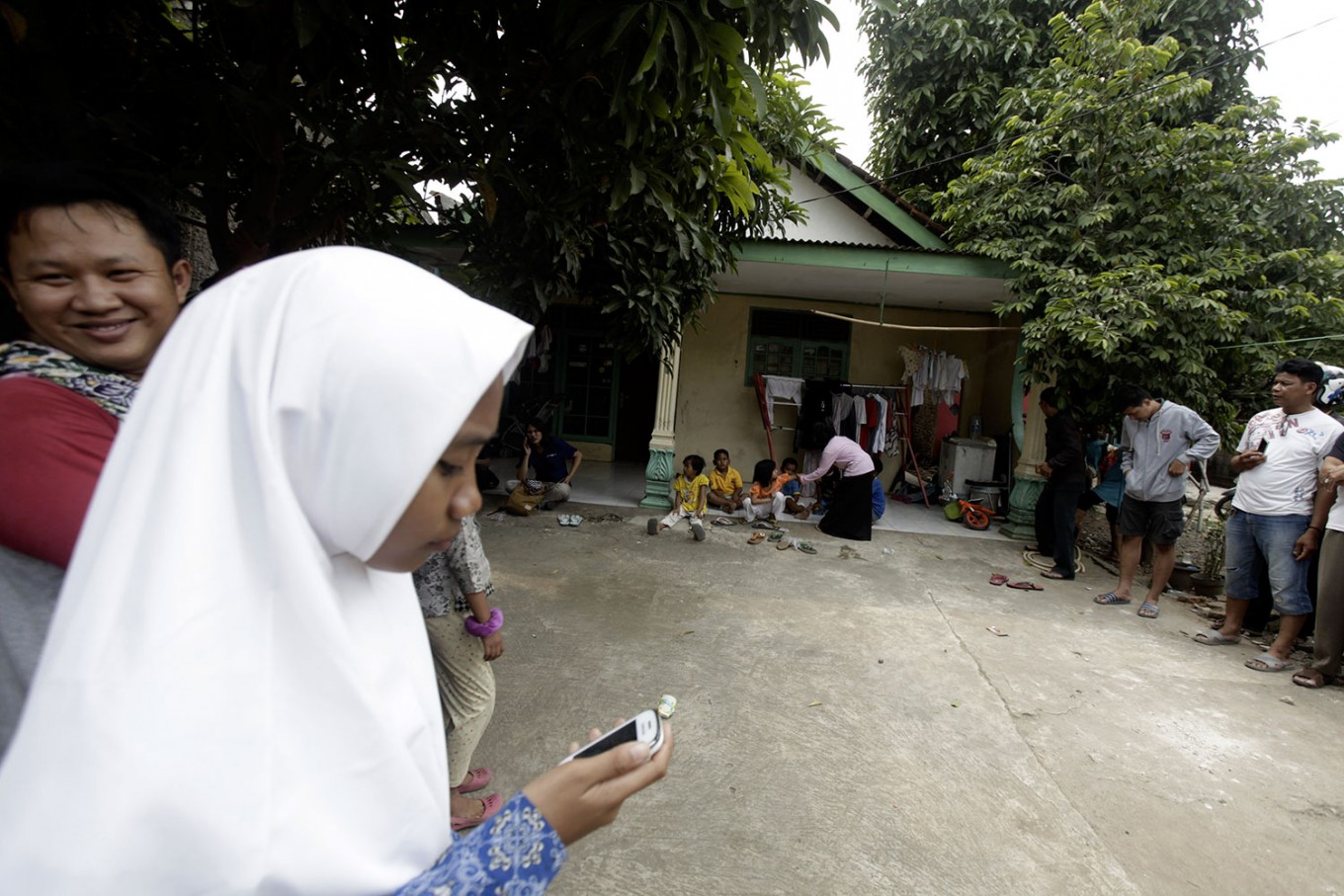Popular Reads
Top Results
Can't find what you're looking for?
View all search resultsPopular Reads
Top Results
Can't find what you're looking for?
View all search resultsRadicalization not only to blame for Tangerang terror
The Oct. 20 attack on Tangerang police officers demonstrates the need for the authorities to not only grapple with violent acts of terror but also to better recognize their underlying causes.
Change text size
Gift Premium Articles
to Anyone
In a time when technology means we are more connected than ever, some youths have never felt so isolated.
The Oct. 20 attack on Tangerang police officers demonstrates the need for the authorities to not only grapple with violent acts of terror but also to better recognize their underlying causes.
(Read also: Tangerang knife attack linked to Aman Abdurrahman: Police)
Already the police are looking at better arming personnel on the streets, and politicians at deploying soldiers and elevating this from a criminal problem to an armed conflict, all from one young man armed with a machete.
Meanwhile, friends, former classmates and relatives are left asking the impossible questions and feeling the pain that every one of these incidents leaves in its wake.
One friend and classmate said he didn’t believe Sultan to be the person in the news and didn’t recognize him to be the same person he was three years ago.
“I never imagined that he would transform from a Pencak Silat maniac into a criminal. I never thought he would change from an ISIS sympathizer to an ISIS executioner.”
Contrary to police statements, his friends assert he hadn’t yet been radicalized in 2013 and they aren’t sure he ever contacted Jemaah Islamiyah.
“He was so good at martial arts, especially pencak silat,” a senior classmate said. “But since 2015, he became so sympathetic to ISIS, so he ran away to a madrasah in Ciamis.”
“When his family tried to take him away from it, he ran away. When they got him back, he was too deeply influenced already.”
It was around this time he met convicted terrorist Aman Abdulrahman, and afterwards changed his Facebook profile name to Abu Sulaiman, and his profile picture to that of ISIS leader Abu Bakr Al-Baghdadi.
Despite this, some claimed this fascination with ISIS wasn’t his only motive for attacking policemen: “He had two elder brothers who are both policemen.”
While some commentators have already tried to blame this incident simply on radical online content and preachers corrupting innocent youth, this approach is likely obsolete and counterproductive.
According to professor Olivier Roy, from the European University Institute in Italy who specializes in studying violent extremism, radicalization isn’t simply indoctrination over the Internet, but is usually sought out by teens with personal motivations.
In a November 2015 lecture titled “What is the driving force behind jihadist terrorism? A scientific perspective on the causes/circumstances of joining the scene”, Roy proposed, “In a word, their radicalization is not the consequence of a long-term ‘maturation’ either in a political movement [Palestine, extreme left, extreme right] or in an Islamic environment. It is, on the contrary, a relatively sudden individual jumping into violence, often after trying something else [army enlistment].”
Western academics are now abandoning disproven and outdated theories of radicalization that focus on theology and communities, looking at individuals as criminals.
According to American scholars such as John Horgan, director of the International Center for the Study of Terrorism at Pennsylvania State University, and professor Arun Kundnani of terrorism studies at John Jay College, New York, the motive for committing acts of terror has little to do with holding radical views.
Terrorism is not motivated by radical ideas, rather by personal fantasies and ambitions. Individual motivation and ideology is as important as political context and strategy.
“Personal fantasy, seeking adventure, camaraderie, purpose, identity – these lures can be very powerful, especially when you don't necessarily have a lot else going on in your life, but terrorists rarely talk about them," Horgan explained in an interview with Rolling Stone.
It might be easier to blame malevolent forces corrupting young Indonesian minds, but studies show that more often than not they are the ones seeking out radical content that fits with their own ideas and desires.
While we might never really understand what finally pushed young Sultan Aziansyah to seek out ISIS propaganda and attack policemen, whether it was a personal grievance with his brothers, the need for a purpose and a cause, or even attention seeking, the least we can do is not belittle what youths are going through today and what causes them to turn to crime.
We must also not give terrorists any more attention than they deserve and treat them as humans, as criminals in need of rehabilitation.
As Sultan’s classmate said, “I will remember and miss him as a friend, and not a member of a terrorist group.”
***
James Abdulmalik Randall is a writer and media spokesperson for IREA, an Islamic research and advocacy organisation based in Melbourne, Australia. A Swinburne graduate, he is currently studying media studies with Curtin University and writing a book on the experience of converts to Islam in Australia.
---------------
We are looking for information, opinions, and in-depth analysis from experts or scholars in a variety of fields. We choose articles based on facts or opinions about general news, as well as quality analysis and commentary about Indonesia or international events. Send your piece to community@jakpost.com. Click here for more information.










